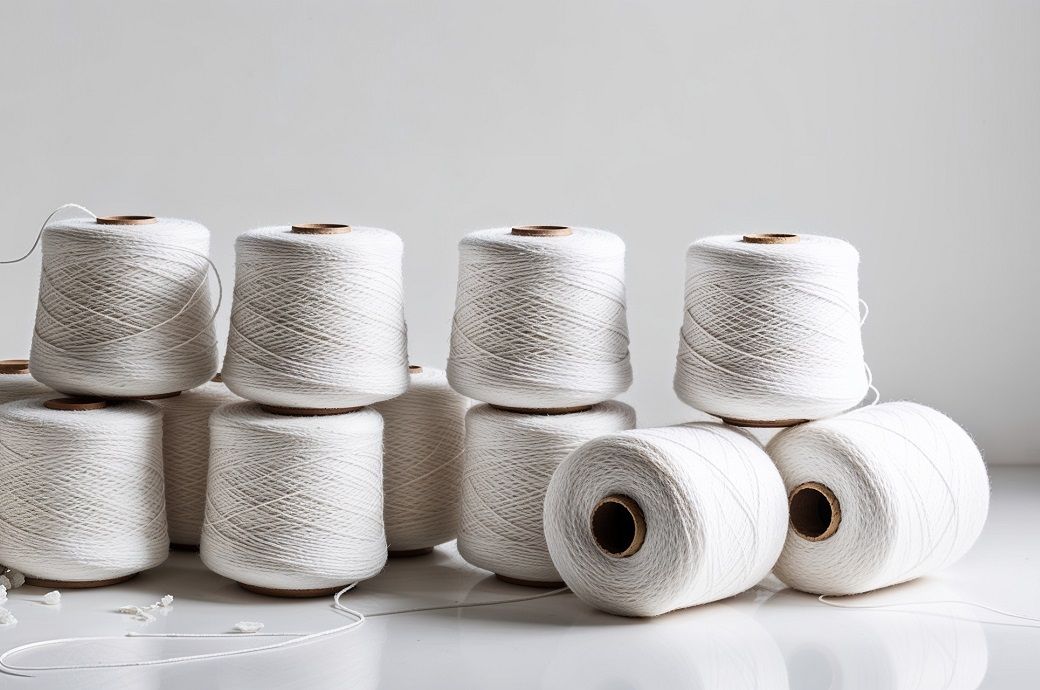
Cotton yarn was stable in Ludhiana, with normal trading in the first week of the new year. A trader from Ludhiana told Fibre2Fashion, "Cotton yarn trade saw average demand from the weaving industry. However, the major factor for market steadiness was the large mills' cotton imports. They are buying cheaper cotton from other countries and selling downstream products in both domestic and global markets. Therefore, they are minimally affected by the rise in domestic cotton prices."
In Ludhiana, 30 count cotton combed yarn was sold at ₹257-267 (approximately $2.99-3.11) per kg (inclusive of GST); 20 and 25 count combed yarn were traded at ₹247-257 (approximately $2.88-2.99) per kg and ₹252-262 (approximately $2.94-3.05) per kg, respectively; and carded yarn of 30 count was noted at ₹237-242 (approximately $2.76-2.82) per kg today, according to trade sources.
The Delhi market also witnessed stability in cotton yarn prices, with sentiments reported as weak, yet prices remained at previous levels. Spinning mills have managed to secure more cotton yarn export orders due to the recent fall in the Indian Rupee against the US dollar, providing much-needed relief. In this market, 30 count combed knitting yarn was traded at ₹260-262 (approximately $3.03-3.05) per kg (GST extra), 40 count combed at ₹282-290 (approximately $3.29-3.38) per kg, 30 count carded at ₹237-239 (approximately $2.76-2.78) per kg, and 40 count carded at ₹262-265 (approximately $3.05-3.09) per kg today.
India’s home textile hub, Panipat, witnessed a slow trade of recycled yarn amid weak demand. Despite improved liquidity in the downstream industry from good sales of blankets and winter garments, buyers remained cautious about fresh purchases. A trader from the market said that buyers will rush to make new purchases once they receive clear market direction. Demand may improve for summer home textile items like bed sheets and pillow covers.
In Panipat, 10s recycled PC yarn (Grey) was traded at ₹78-82 (approximately $0.91-0.96) per kg (GST paid). Other varieties and counts were noted at 10s recycled PC yarn (Black) at ₹53-56 (approximately $0.62-0.65) per kg, 20s recycled PC yarn (Grey) at ₹96-102 (approximately 1.11-1.19) per kg and 30s recycled PC yarn (Grey) at ₹130-135 (approximately $1.51-1.57) per kg. Cotton comber prices were noted at ₹102-108 (approximately $1.19-1.26) per kg and recycled polyester fibre (PET bottle fibre) at ₹78-80 (approximately $0.91-0.93) per kg today.
In north India, cotton prices were slightly higher due to limited market availability. Prices increased by ₹25-30 per maund of 37.2 kg. According to traders, the Cotton Corporation of India (CCI) is buying seed cotton at the minimum support price, which is higher than the market prices, and this stock will likely remain blocked for the next few months, reducing the regular availability of cotton in the domestic market. Cotton arrivals are also decreasing due to lower production.
Cotton arrivals in North India totalled 11,600 bales of 170 kg, comprising 600 bales in Punjab, 4,000 bales in Haryana, 3,500 bales in upper Rajasthan, and 3,500 bales in lower Rajasthan. Cotton prices in Punjab ranged from ₹5,530 to ₹5,550 (approximately $64.44-64.67) per maund of 37.2 kg, while in Haryana, prices ranged similarly. In upper Rajasthan, cotton was priced between ₹5,550- ₹5,570 (approximately $64.67-64.90) per maund. In lower Rajasthan, it was priced at ₹53,000 to ₹54,000 (approximately $617.57-629.22) per candy of 356 kg. Seed cotton was priced at ₹7,100-7,400 (approximately $82.73-86.23) per quintal of 100 kg.
ALCHEMPro News Desk (KUL)
Receive daily prices and market insights straight to your inbox. Subscribe to AlchemPro Weekly!